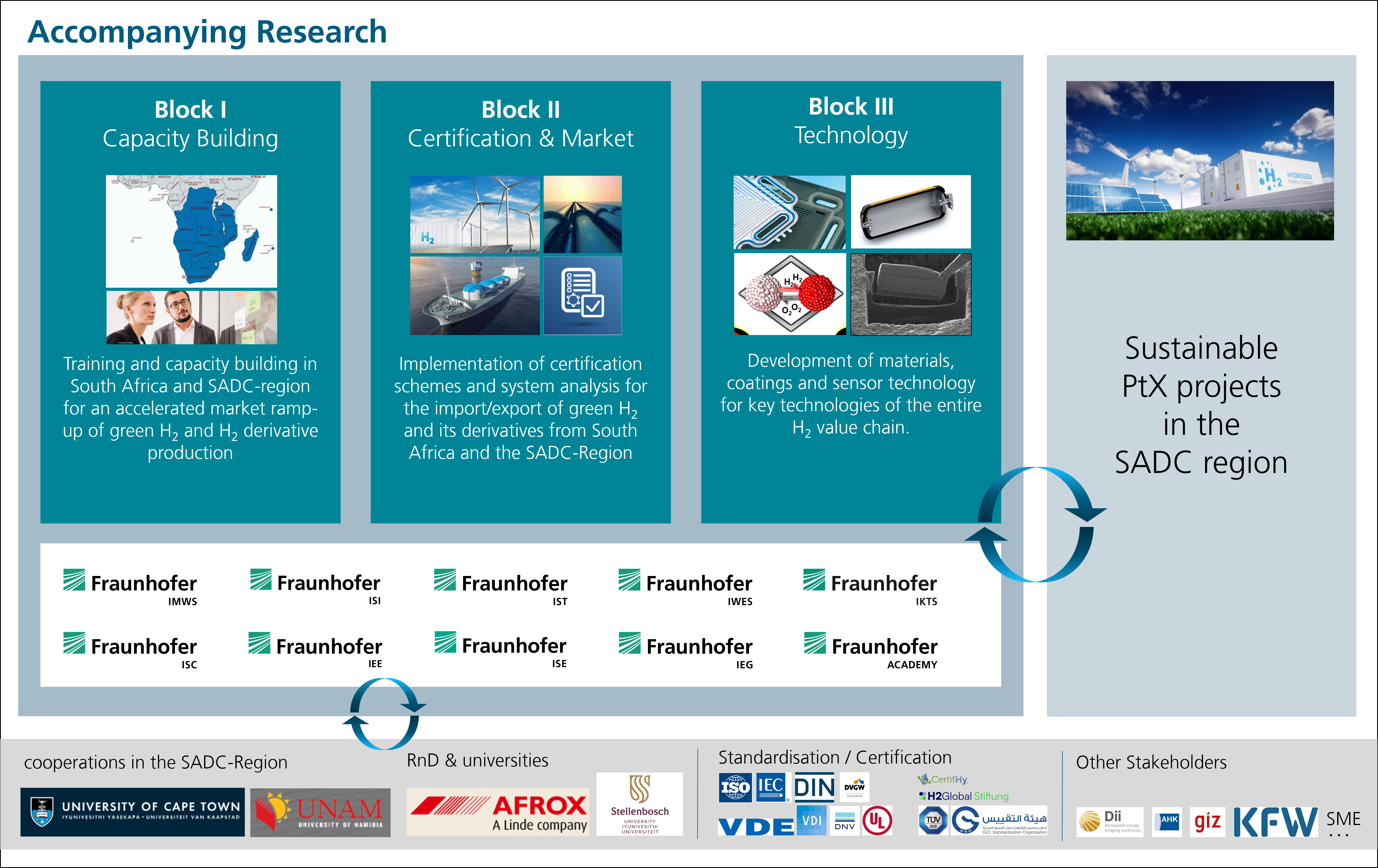Project Objectives
Achieving climate neutrality in Germany will require large quantities of green hydrogen and its derivatives, which will have to be imported to a large extent. To this end, production opportunities are to be systematically developed in partner countries.
The main objective of the HySecunda project in South Africa is to develop practical, scalable technological and capacity solutions for the market ramp-up along the entire value chain of green hydrogen and its derivatives for the entire SADC region (SADC stands for "South Africa Development Community"), which will lead to a significant reduction in the costs of hydrogen production.
